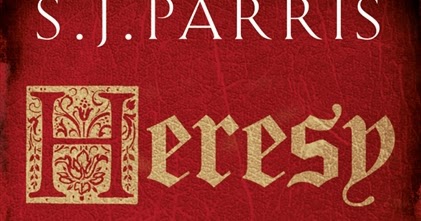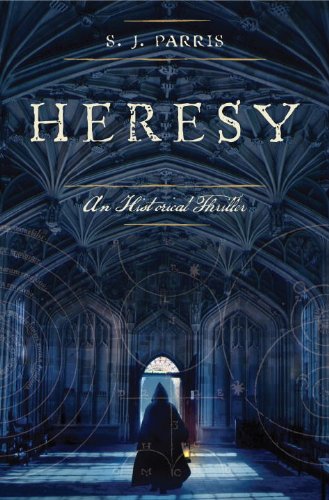

But as Merritt knows, the process is highlighted in genre fiction, where the whole point is the repetition (or not) of specific tropes and strategies the chain of reflections and refractions that leads from Ivanhoe to The French Lieutenant's Woman and Wolf Hall. Merritt has spoken of her love for Umberto Eco's The Name of the Rose, so is surely familiar with his remark in the postscript that "books always speak of other books, and every story tells a story that has already been told".įor Eco, of course, this is the postmodern condition: signs denote other signs rather than an external, concrete "reality".

HarperCollins paid a small fortune for Heresy, and in some ways its competence would be unremarkable were it not allied to such an obvious fascination with the nature of genre writing. Bruno lodges at Lincoln as a guest of Underhill – for whom Merritt invents a foxy, proto-feminist daughter called Sophia – but is obliged to turn detective after a doctor of divinity is killed, apparently by a stray dog, in the fellows' garden. Drawing on recent research which suggests Bruno may have been spying on Catholic conspirators for the state, she drops him into a fervid, paranoid Oxford teeming with recusant papists. Merritt uses Bruno's Oxford trip as the framework for an atmospheric and well-written historical thriller. Alas, his progressive views – he went beyond Copernicus in proposing an infinite universe containing solar systems similar to our own – led to accusations of heresy and necromancy, and he emerged bruised from a public dispute with the rector of Lincoln College, John Underhill. With his friend, the poet Philip Sidney, he travelled to Oxford, where he hoped to find a teaching post. In April 1583, he visited England for the first time.


The historical Bruno ended up in Paris where he secured the patronage of some of France's most powerful men, notably King Henry III. Before you can say "No one expects the Italian inquisition", Bruno has dropped the book into the cesspit, fled the building and become a fugitive from religious justice – which is, of course, no justice at all.Īctually, these are true events. But the year is 1576 and Bruno is a Dominican friar at a monastery in Naples. S tephanie Merritt's pseudonymous third novel opens as its hero, the philosopher and memory expert Giordano Bruno, is discovered reading Erasmus on the privy.


 0 kommentar(er)
0 kommentar(er)
